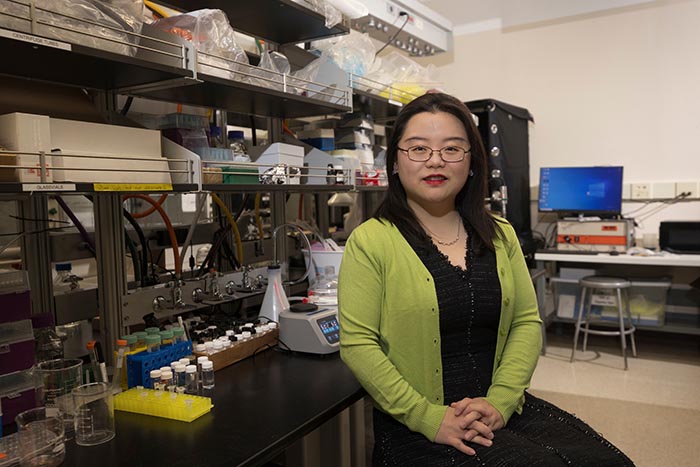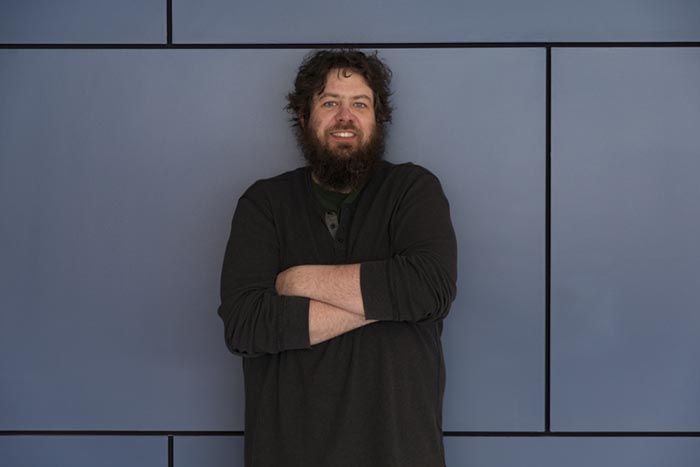Meet our NSF CAREER Award winners
The National Science Foundation has honored nearly 30 Watson College faculty members over the past 25 years with CAREER Awards, which support early-career faculty who have the potential to serve as academic role models in research and education.
2024
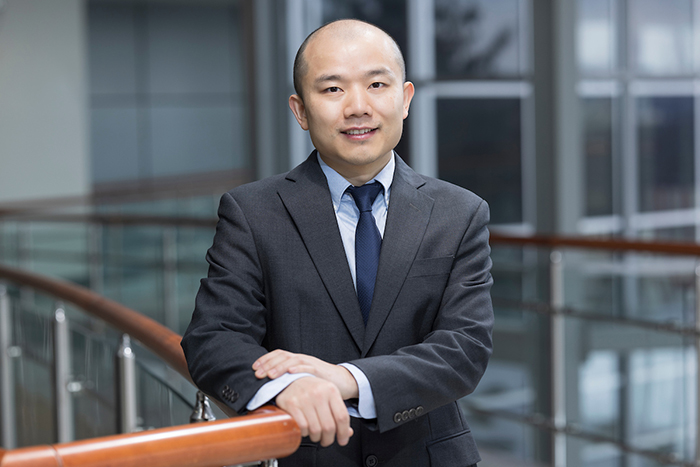
Jifu Tan - Department of Mechanical Engineering
Multiscale Modeling of Thrombus Formation and its Response to External Loads
Professor Jifu Tan is modeling the formation and rupture of blood clots within the bloodstream — part of a larger effort to tackle one of the leading causes of death in the world, cardiovascular disease. Read more.
2023
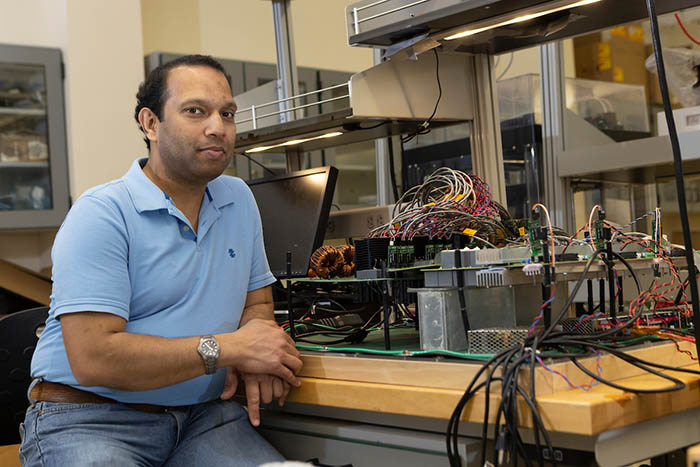
Pritam Das - Department of Electrical and Computer Engineering
Multi-level Bridge Tapped Resonant (MBTR) Solid-State Transformers (SSTs)
Professor Das explores improving electrical transformers that will better integrate green energy such as solar and wind power into the power grid. Read more.
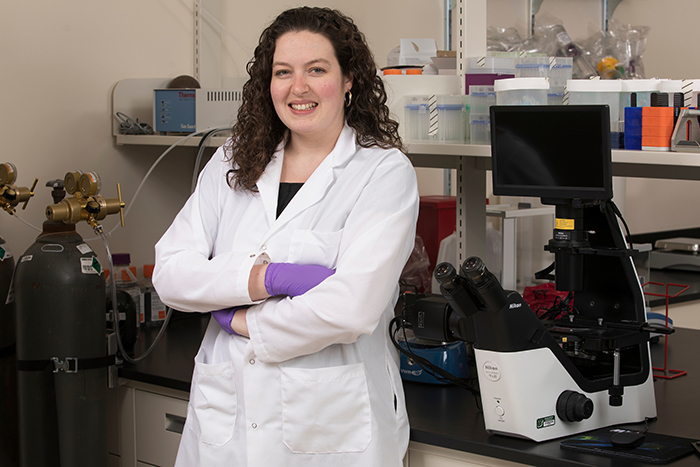
Tracy Hookway - Department of Biomedical Engineering
Engineering Autonomic Control of Cardiac Tissues
Professor Hookway will explore the role of autonomic neural stimulation on the function of engineered cardiac tissues, studying the interplay between the sympathetic neurons that speed up the heart’s beat rate and the parasympathetic neurons that slow it down. Read more.
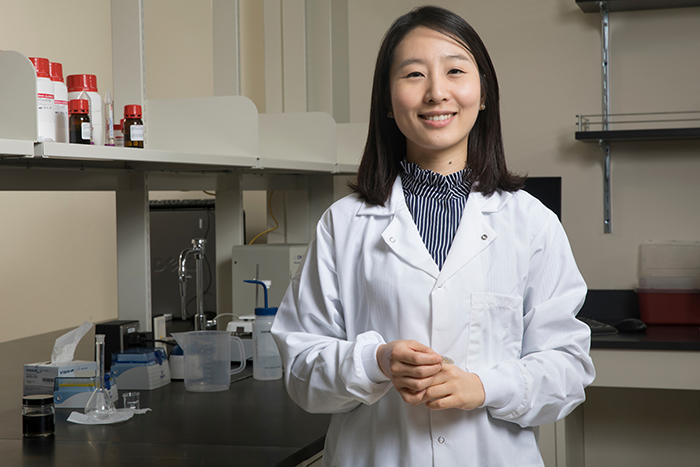
Ahyeon Koh - Department of Biomedical Engineering
Artificial Extracellular Matrix Biosensors (e-ECM)
Professor Koh will research better ways to attach biosensors. She has developed a flexible, porous material made from polydimethylsiloxane (PDMS), a nontoxic silicone commonly used for biomedical purposes, which she says is better than the nonporous film that is most common now. Read more.
Siyuan Rao - Department of Biomedical Engineering
Multifunctional Soft Neural Probes for Elucidating Spinal Cord Injury Pathophysiology
Professor Rao is looking to establish engineering platform methodologies to investigate the nervous system and develop therapeutics. She hypothesizes that the development of a new multifunctional soft neural probe technology can advance a holistic understanding of neural pathophysiology in spinal cord injuries. Read more.
2022
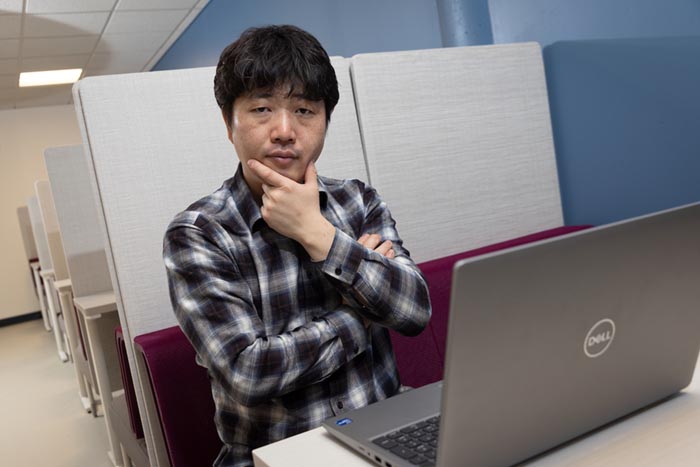
Seunghee Shin - School of Computing
Hardware/Software Co-design for Serverless Computing
Professor Shin is researching ways to shorten the distance between our devices and the information they need by creating a series of memory caches along the route, which would make cloud-based programs run faster. Read more.
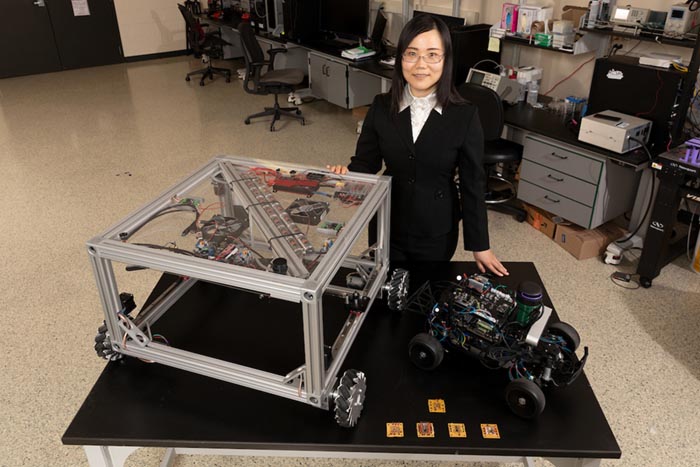
Kaiyan Yu - Department of Mechanical Engineering
Professor Yu is investigating methods to independently manipulate large numbers of nanoscale objects precisely and reliably, a key step toward nanorobots with potential applications in medicine, electronics and materials science. Read more.
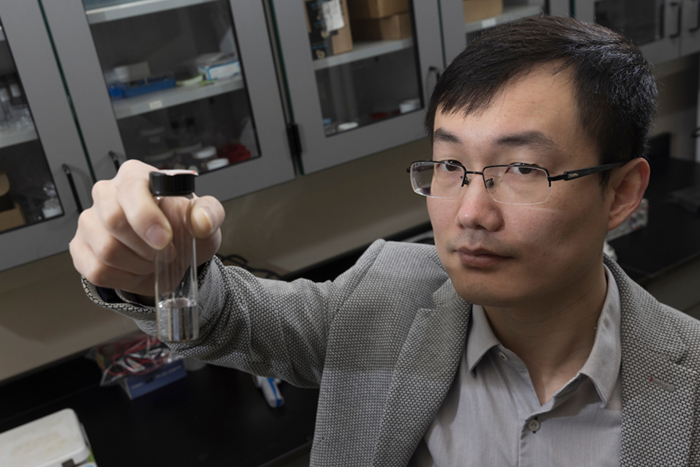
Pu Zhang - Department of Mechanical Engineering
Electro-Mechanical Behaviors of Soft Conductive Composites Embedded with Liquid Metal Fiber Networks
Professor Zhang wants to improve soft electronics by using liquid metal networks in rubber that can deform easily while remaining highly conductive. Read more.
2021
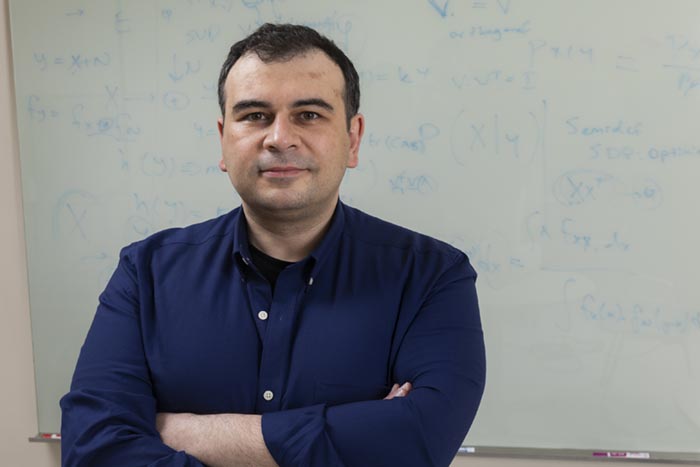
Emrah Akyol - Department of Electrical and Computer Engineering
A Holistic Framework for the Analysis of Information Dynamics in Human Networks
Professor Akyol is examining the use of game theory for leveling the playing field when different networks or senders and receivers have competing goals. Read more.
Jeremy Blackburn - School of Computing
Towards a Data-driven Understanding of Online Sentiment
As part of his ongoing research to better monitor content on social media and elsewhere on the internet, Professor Blackburn wants to develop tools that can better sort and analyze users' posts, especially images. Read more.
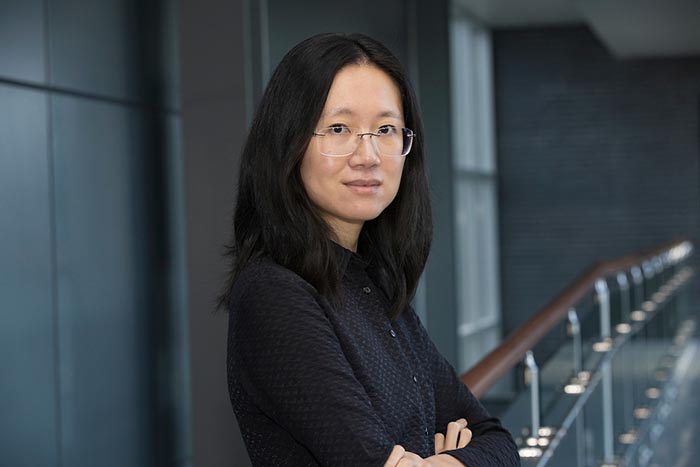
Yizeng Li - Department of Biomedical Engineering
Professor Li will use mathematical modeling to predict confined cell migration and reveal new mechanisms of how hydraulics can facilitate it. The results will open new avenues of research in the synergistic effect of fluid in biophysical processes such as immune response, wound healing, tissue regeneration and cancer metastasis. Read more.
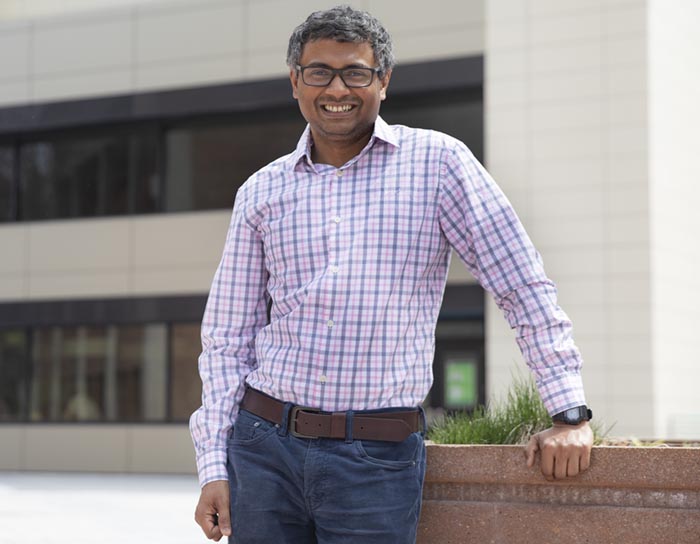
Aravind Prakash - School of Computing
Binary-Level Security via ABI-Centric Semantic Inference
Professor Prakash uses binary analysis techniques to understand the inner workings of a software and to identify potential holes that could let hackers in. Read more.
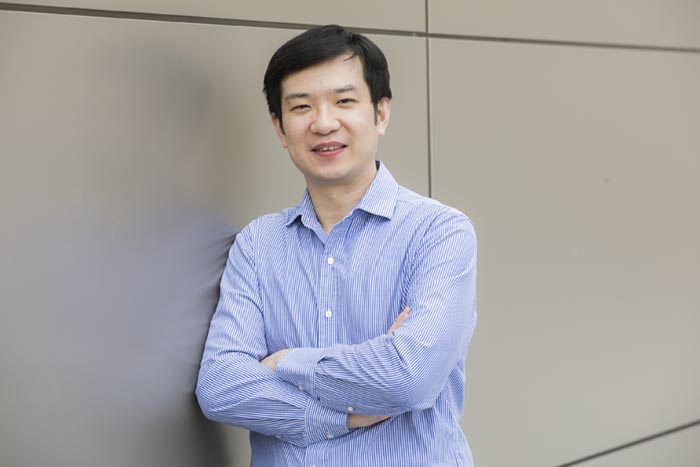
Mo Sha - School of Computing
Professor Sha is studying more efficient ways to run industrial wireless networks in settings such as factories and warehouses. Read more.
2020
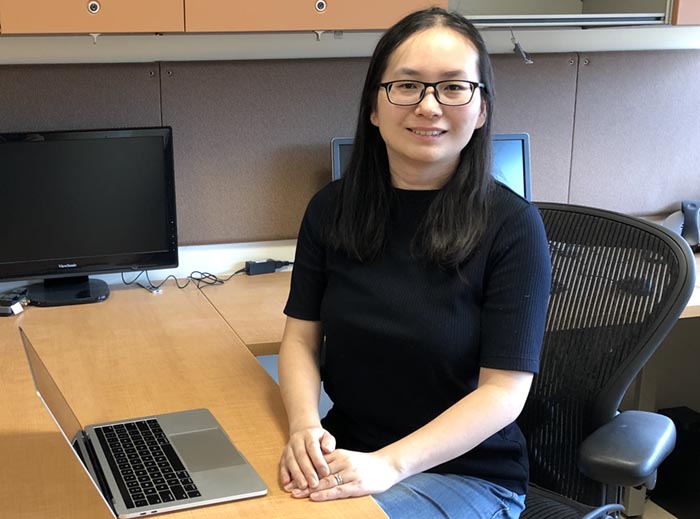
Yao Liu - School of Computing
Professor Liu's research on immersive media centers on area-of-focus projections, which analyzes human behavior to decide which parts of a 360-degree image get most of a user’s attention and rendering those with the maximum amount of processing power. Read more.
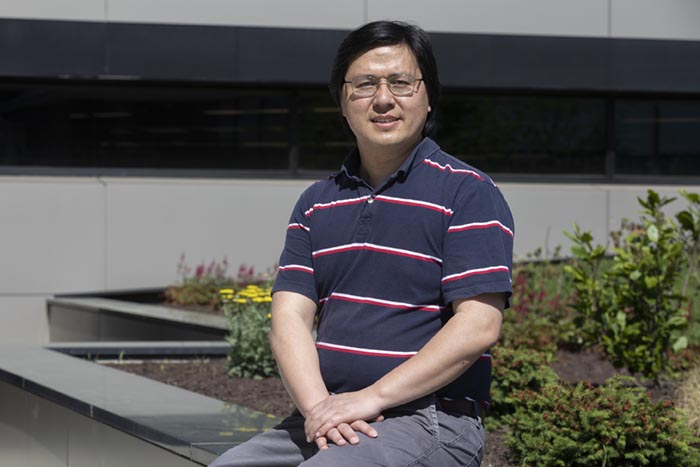
Guanhua Yan - School of Computing
Proactive Techniques for Enhancing Security and Resilience of Mobile Communication Infrastructure
Professor Yan is developing a three-layered, proactive defenses for the next-generation mobile communication infrastructures.
Yifan Zhang - School of Computing
Enabling Edge-hosted Private Services via Unikernel-based Lightweight Virtualization
Professor Zhang is working on improving wireless connectiviity by taking advantage of edge-based computing and unikernel-based programming to increase processing speed. Read more.
2019
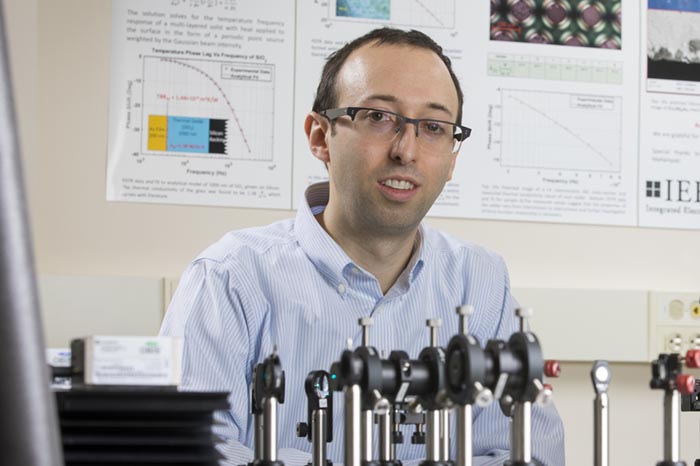
Scott Schiffres - Department of Mechanical Engineering
Intermetallic Interfacial Thermal Transport for Advanced Electronics Manufacturing
Professor Schiffres is seeking alloys that can dissipate heat more quickly than materials in current use, which has applications in additive manufacturing as well as electronics packaging and superalloys. Read more.
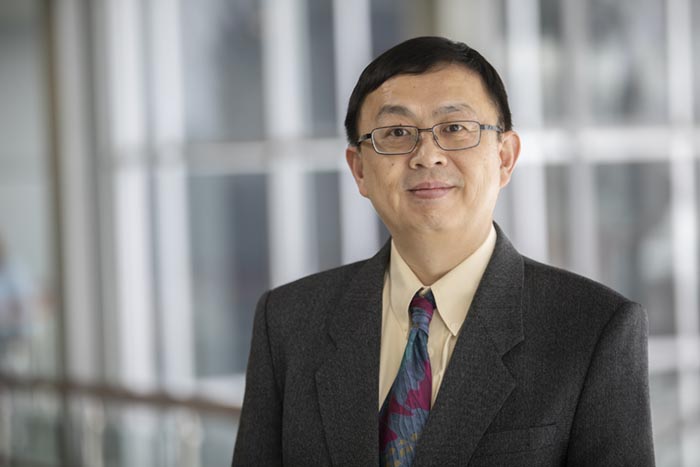
Ning Zhou - Department of Electrical and Computer Engineering
Professor Zhou's research seeks to provide a vision for power systems as fossil fuels wane and renewable energy sources take center stage. Read more.
2017
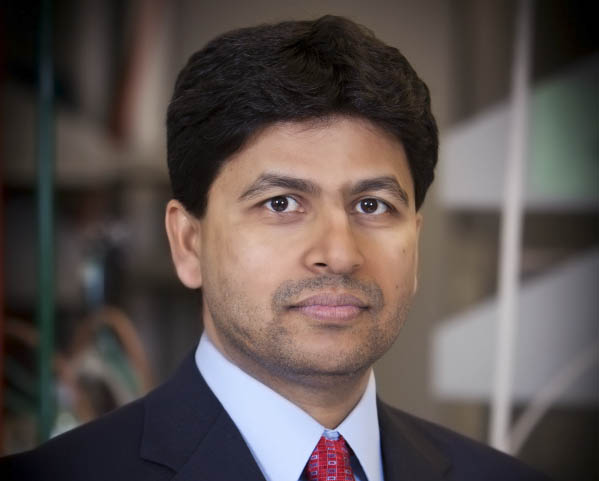
Tara Dhakal - Department of Electrical and Computer Engineering
Toward Twenty Year Lifetime: Hermetic Sealing for Perovskite Solar Cells
Professor Dhakal's work focuses on solar cells made with perovskite, a crystalline mineral found in nature that has shown the potential to create solar cells that are just as efficient as the silicon-based type. Read more.
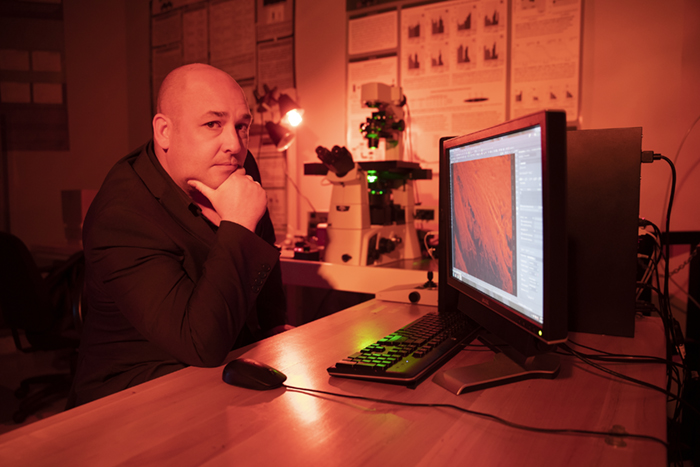
Guy German - Department of Biomedical Engineering
Professor German explores how aging, ultraviolet light and bacteria weaken skin, cause wrinkles and increase the risk of skin rupture. Read more.
2016
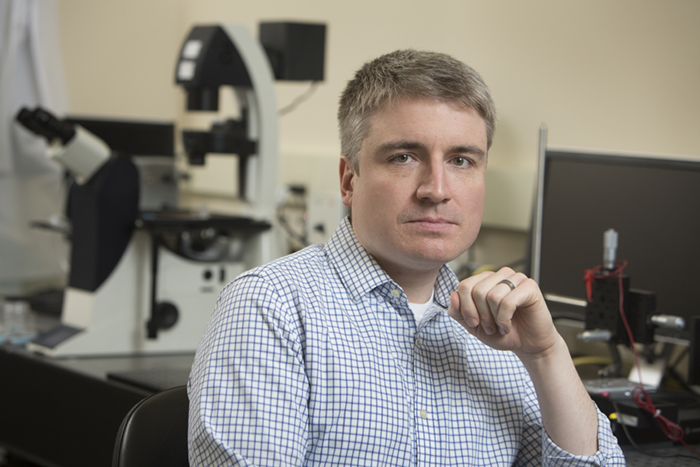
Paul Chiarot- Department of Mechanical Engineering
Additive Manufacturing using Electrospray Printing of Nanoparticle Inks
Professor Chiarot's technique for 3D printing, called electrospray, puts tiny particles into a solvent and applies them to a surface, creating electronics in a process not unlike an inkjet printer. Read more.
Previous winners
2011
- Yu "David" Liu (SoC): Programming Models for Green Software
- Guangwen Zhou (ME): Atomic Scale Study of Reduction of Metal Oxides
2009
- Kartik Gopalan (SoC): Coordination Mechanisms for Performance-aware Virtualization in Clusters
- Ying Sun (ME): Multi-Scale Study of Transport Phenomena in Printable Electronics for Enhanced Microstructure and Properties
- Mohammad Younis (ME): Investigations into Nonlinear Phenomena in Electrostatic MEMS and their Potential for Smart Sensors and Actuators
2006
- Hao "Howard" Wang (ME): Equilibrium Thermodynamics and Thermodynamic Metastability in Polymer Blends with Coexisting Liquid-Liquid Phase Separation and Crystallization
